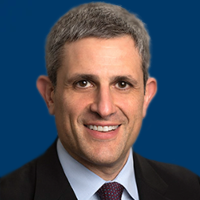Video
Dr. Mamounas on Adverse Events With Mastectomy in Breast Cancer
Author(s):
Eleftherios P. Mamounas, MD, surgical oncologist, UF Health Cancer Center - Orlando Health, discusses the common adverse events associated with mastectomy and breast conserving surgery for patients with breast cancer, as well as how oncologists can best manage these toxicities.
Eleftherios P. Mamounas, MD, surgical oncologist, UF Health Cancer Center-Orlando Health, discusses the common adverse events associated with mastectomy and breast conserving surgery for patients with breast cancer, as well as how oncologists can best manage these toxicities.
Mastectomy is often combined with reconstructive surgery, which is where the majority of adverse events stem from, Mamounas explains. This is due to the addition of expanders and implants that are inserted into the breasts, which can cause infection, bleeding, and, occasionally, loss of expander or implant. Flap reconstruction can also have a significant recovery time.
The key is to properly select patients who are likely to develop risk during mastectomy. Such characteristics include smoking, prior radiation therapy, and diabetes. It is also important for oncologists to administer prophylactic antibiotics prior to and after surgery and to have good surgical techniques, Mamounas adds.









